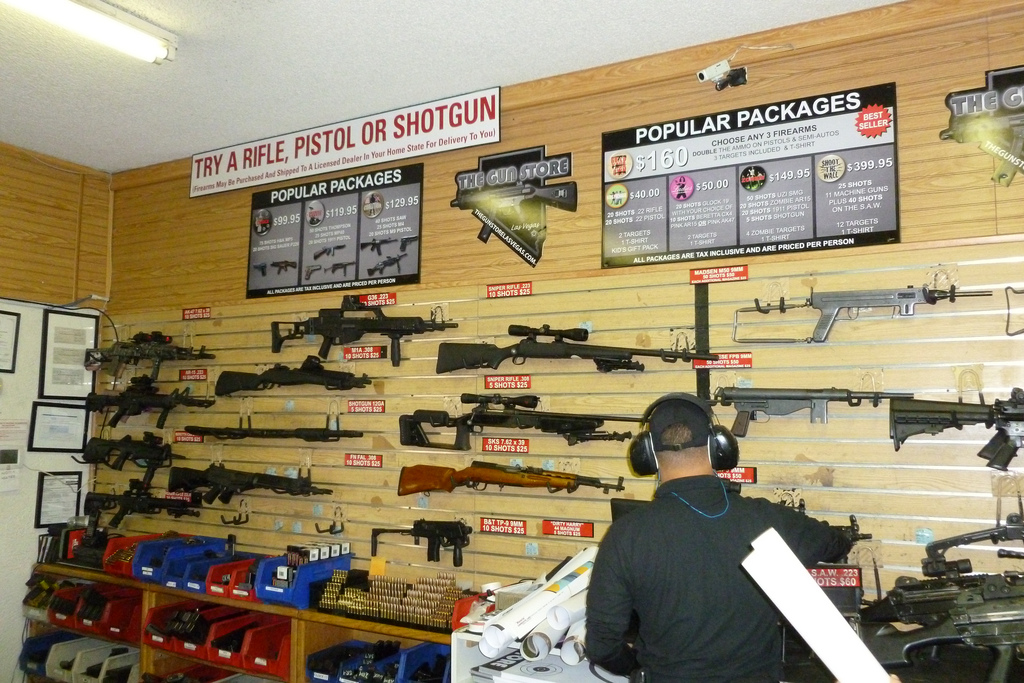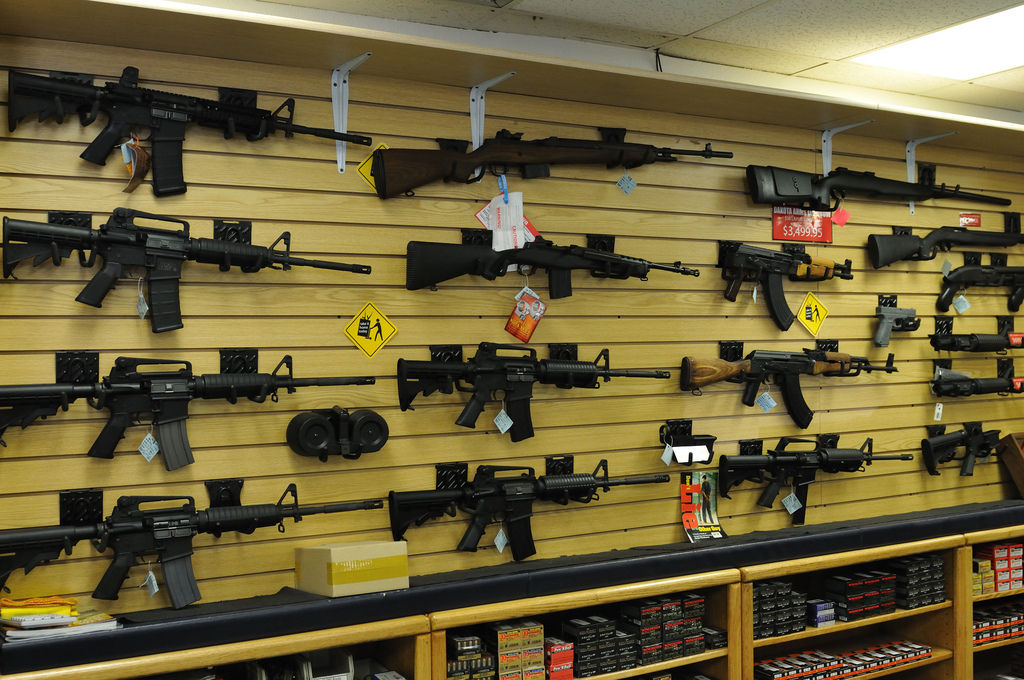
Like any business, you want to attract more customers so you can grow. Use these key strategies to develop your business and bring in more sales.
Whether you’re using your FFL to operate a retail store, make on-the-road gun show sales, or run a home-based operation, you’re still always looking for ways to grow your business.
Aside from the unique regulatory situation, selling firearms is a lot like selling anything else. You have customers to serve, inventory to manage, and profit margins to protect.
On our blog, we talk a lot about legal regulations and complying with the ATF. But, today we thought we would take a different approach and offer some advice on growing your business and putting more money in your pocket. Here are the best strategies we’ve learned from talking to countless firearm dealers.
1. Build a community around firearms.
People like to be a part of something, especially when it has to do with their hobbies. If you can find ways to make them feel included in something bigger than themselves, they’ll happily spend more money. (That isn’t to say you need to manipulate them. Providing a sense of community adds value to their lives.)
Use your store to build a community around firearms with your customers.
Start by making your firearms store a place where people can spend time. Place a few tables and chairs off to the side, but near the door. Add a bulletin board for events and flyers and a nearby coffee pot.
Next, budget some time in your day for casual conversation with customers that isn’t sales focused. Your goal is to make friends and give people a reason to hang around. Make it clear that you aren’t some corporate suit who only cares about his bottom line.
Connect with any local organizations that support the safe use of firearms. There may be a club nearby, a firearms training school, or a local competitive league. You don’t have to donate money or buy advertising space with these organizations (although that wouldn’t hurt), but you should make yourself an active participant. This creates goodwill in the community.
Finally, communicate with your customers when they aren’t in your store. Develop some social media profiles so you can share news and entertainment, as well as collect their feedback (this is an opportunity to learn about your customer – more on this in a moment). Request their email addresses when they make a purchase so you can send content to their inboxes.
2. Find a way to differentiate yourself from your competition.

Image: ElCapitanBSC / Flickr
Competing on price isn’t a sustainable strategy. You have to find a way to make yourself different from your competitors (especially the big box stores that can sell at the lowest prices) so that buyers prefer your store.
First, investigate your competitors. Physically go into their stores and browse for a while. Do they offer any special services? Do they have any unique promotions? How do they offer special value to their customers?
For instance, you might notice that a competing store does a lot of gunsmithing work. This means that customers are willing to come to a firearms store for additional services. Maybe you could offer AR-style rifle assembly or customized artwork. There are many ways you can use your FFL.
Look for gaps in the market. Is it tough to find competition firearms and accessories in your area? Is there a lack of optical equipment? Do local stores cater to avid enthusiasts and neglect casual users? All of these could be opportunities to be different. “Think outside the box,” Frank Brownell of Brownells.com says to Ammo Land. “Come up with a neat, recognizable, marketable way to make you stand out from the crowd.”
Second, speak to your customers. Ask them plainly how else you can solve their problems. Maybe they wish they could buy smaller boxes of ammunition or mixed assortments. Maybe they’re looking for a local firearms safety course or shooting lessons, and perhaps those are needs that you could meet.
3. Cluster near similar businesses.
Why do malls work? You would think that similar businesses would prefer to be far away from one another so they don’t steal each other’s customers, but that isn’t the case. Clustering together creates a commerce hub where everyone makes more money. I’m not suggesting that you move your firearms store next to another gun shop, but you can still take advantage of clustering.
Partner with businesses that have similar customer bases. For example, check your local shooting ranges, especially the ones who don’t sell firearms. Ask if you can sell some of your items in their shop. Yes, you’ll make a smaller margin on each item because the range will want a piece, but these are additional sales that don’t cut into your business.
If you were willing to go through all the paperwork, you could make a lot of money by setting the range up as a responsible person on your FFL so you could sell your entire line of firearms on their premises.
You can cluster with any business who serves the same customer. Look into creating partnerships with sporting goods stores, fishing stores, outdoor apparel stores, archery stores, or survivalist stores.
4. Understand your customer well.
I’m sure you’ve heard of the phrase “The customer is always right,” but it doesn’t mean what you think. It doesn’t mean the customer should get their way. Instead, it refers to markets, in that you should sell whatever the customer wants to buy.
Hopefully you’re selling firearms because you enjoy the culture and the people. If not, you need to immerse yourself in both. Talk to firearms enthusiasts relentlessly. Find out what they expect from a firearms vendor and how they prefer to spend their money.
Use your data, too. Your point of sale system should be able to report your sales figures. Do you sell an unusually high number of small handguns? Perhaps your customers are concerned about personal defense. You could create more sales by packaging self-defense kits (handgun, ammo, mace, flashlight, alarm, etc.) or referring customers to a self-defense program for a commission.
Make sure you know your local laws and customs. For example, you can only hunt deer with shotguns in most of Iowa. Stocking up on rifles for deer season makes sense anywhere else, but not there. Filling your shelves with deer slugs would create the most sales.
5. Expand your inventory.

Image: Michael Saechang / Flickr
There is a tremendous selection of firearms and related equipment available these days. Your customers have very specific needs. Being known for something (like competitive guns or a big ammo selection) is smart, but if you try to focus too strongly on a particular niche, you’ll lose sales.
For instance, modern sporting rifles are popular everywhere, but they can’t sustain a business. During the slow season, you need every sale you can collect to pay your rent. If you rely too heavily on one type of sale, you’ll lose your business if those purchases become unpopular.
Expand your inventory anywhere you can, but do it smartly. Stock more products that your customers want to buy (this goes back to understanding your customer). Accessories typically have much larger profit margins than firearms, so keep plenty on hand. When you can make a 100% markup on an item, it’s smart to push them. Make sure you follow inventory management best practices, too.
“People are continuing to purchase things like range time and ammo,” Larry Hyatt of Hyatt Guns in Charlotte, North Carolina tells Shooting Sports Retailer. “And reloading has seen a tremendous surge in interest. Gun care areas, like cleaning products and storage units (safes, vaults) are also big, as are extra magazines for a variety of firearm styles.” AR accessories and women-related accessories are popular as well.
Ideally, you want to become a one-stop-shop for your customers. They should be able to buy all of their shooting products at your location. If you ever find yourself turning a customer away because you lack a particular item or can’t offer a particular service, make a note to find a way to serve that customer in the future.
6. Stay out of trouble.
You can’t grow your business if you’re always dealing with ATF violations and penalties. You need to lock down your compliance and record keeping practices early in your business’ lifespan. If the ATF revokes your FFL, growing your business won’t be a concern because you’ll be out of business.
Electronic bound book software is the best way to maintain careful regulatory compliance and save you a whole lot of time so you can focus on growing your business. Start your free trial of FastBound today.
